State of the Union 2019: Trump claims fact-checked
- Published
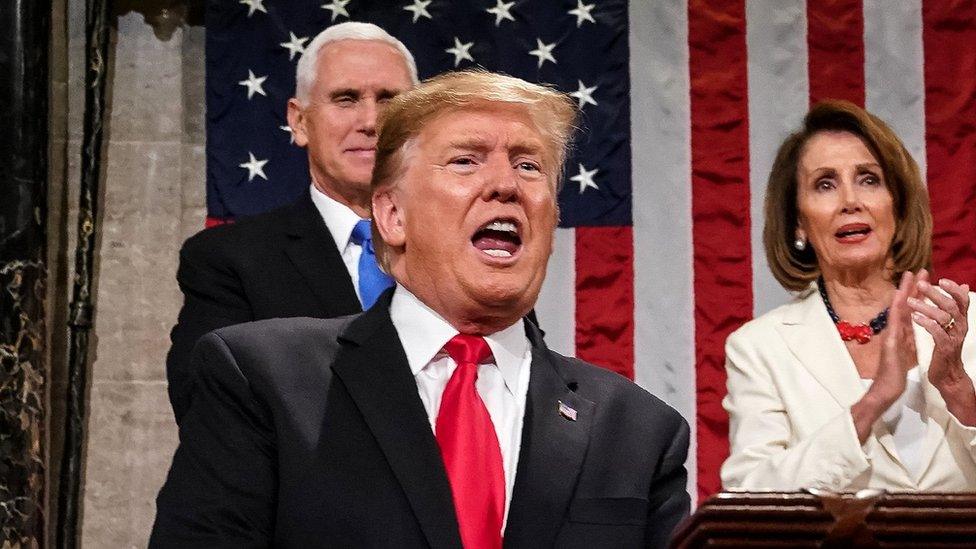
US President Donald Trump's speech was filled with praise for the strong economy. But did his numbers add up?
1. "Wages are rising at the fastest pace in decades"
This is exaggerated. Last year, average hourly earnings increased by 85 cents, or 3.2%, according to the Bureau of Labor Statistics, external. This isn't the highest for decades though; it's the highest since 2009.
The wage growth does not take into account inflation (that's the rate at which prices for goods and services increases). The current inflation rate is 1.9% for the 12 months ending on December 2018, according to the US Labor Department.
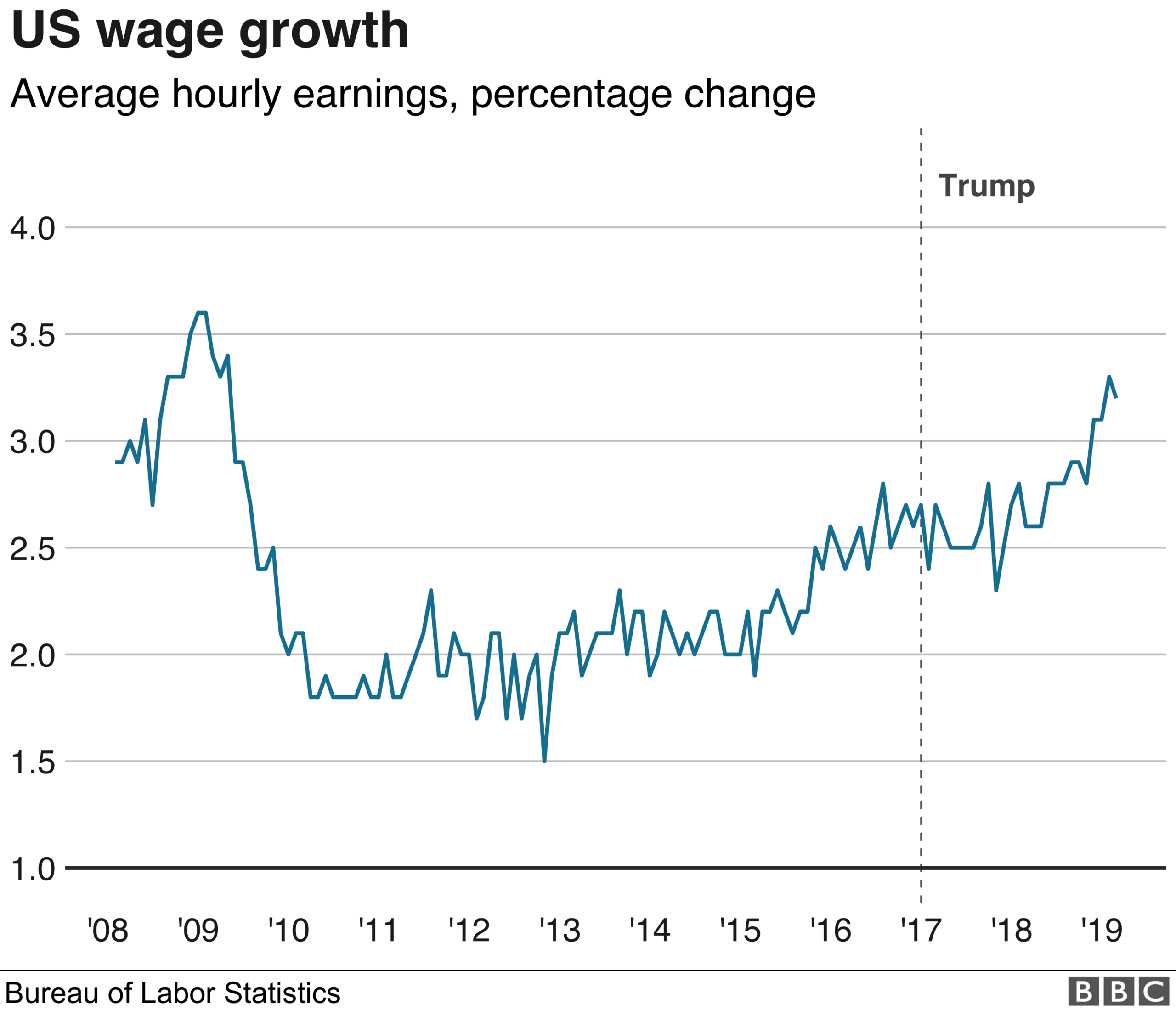
2. "We have created 5.3 million new jobs and importantly added 600,000 new manufacturing jobs"
This is another exaggeration. From Jan 2017 to Jan 2019, the US added 4.9 million jobs in total, including 454,000 in manufacturing, according to the Bureau of Labor Statistics, external (BLS).
The president appears to have inflated his numbers by going from the date of the 2016 election, rather than the date he assumed office.
However, the economy is growing under the Trump administration - a trend that began under President Barack Obama.
3. "African-American unemployment has reached its 'lowest levels ever recorded"
This is true. In May 2018, unemployment for African Americans fell to 5.9%, the lowest figure since the 1970s (when the BLS started breaking down the figures by race). This followed on from a similar trend under the Obama administration. It was recorded as 6.8% in January 2019.
Some US media have highlighted some important caveats, external:
The figures tend to be volatile and vary from month to month
The rate is still statistically higher than for other ethnic groups
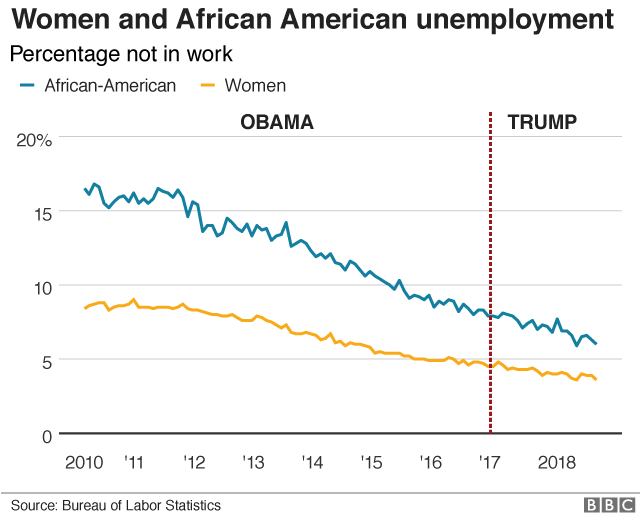
4. "Americans pay vastly more than people in other countries for the exact same drugs"
This is true. Many other countries directly negotiate with pharmaceutical companies to regulate the prices.
The US spent $1,443 per capita on pharmaceutical costs in 2016, compared to a range of $466 to $939 in 10 other high income countries, including the UK, Australia, Canada and Japan, according to a study in the Journal of the American Medical Association, external.
Both Democrats and Republicans want to reduce the costs.
5. "The United States is now the number one producer of oil and natural gas in the world"
True - according to the US Energy Information Administration (EIA), an independent energy statistical agency - it is the leading global oil and natural gas producer.
Output has risen beyond Russia and Saudi Arabia, which have been limiting production to boost prices.
The International Energy Agency predicts that by 2025 nearly every fifth barrel of oil and every fourth cubic metre of gas in the will come from the United States.
6. El Paso "was one of the most dangerous cities in the country"
President Trump made the claim while focusing on the "national crisis" of illegal immigration and called on Congress to back his plans for a border wall.
He said the Texan city of El Paso - on the Mexican border - "was one of the most dangerous cities in the country", until a barrier went up. This is false.
A stretch of fence was constructed there between 2008 and 2009, which appears to be the moment the president is referring to.
In the years immediately before the barrier went up, El Paso had one of the lowest crime rates among the 50 largest cities in the US, according to FBI statistics, external.
In 2007, there were 418 violent crimes per 100,000 people in El Paso. By comparison, in 2007, Detroit, Michigan, had 2,287 violent crimes per 100,000 people.
Since the fencing was completed, the violent crime rate in El Paso has gone down before rising slightly in 2016, but it's still one of the lowest out of the largest 50 US cities, according to the FBI statistics.



- Published4 February 2019
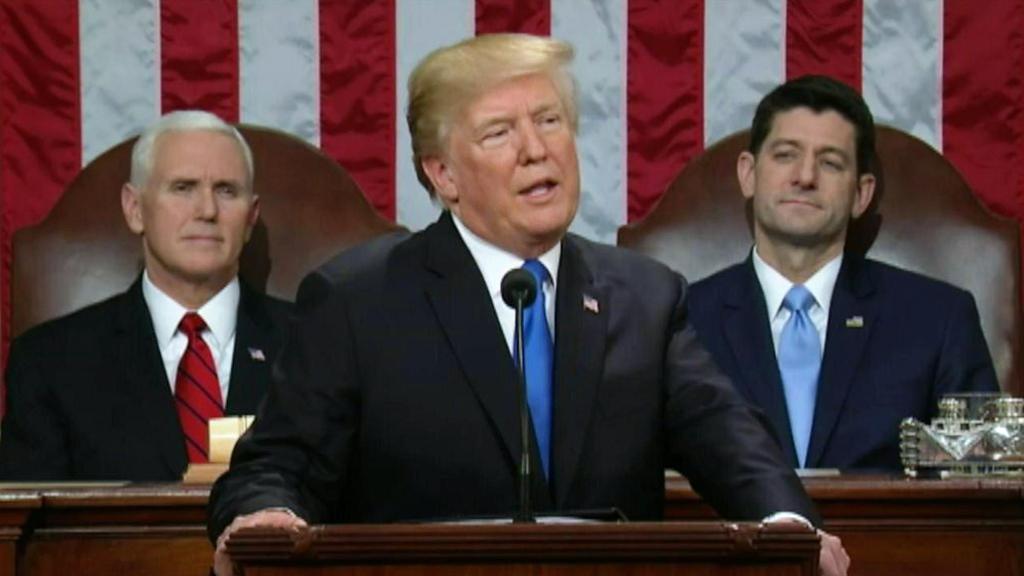
- Published6 February 2019
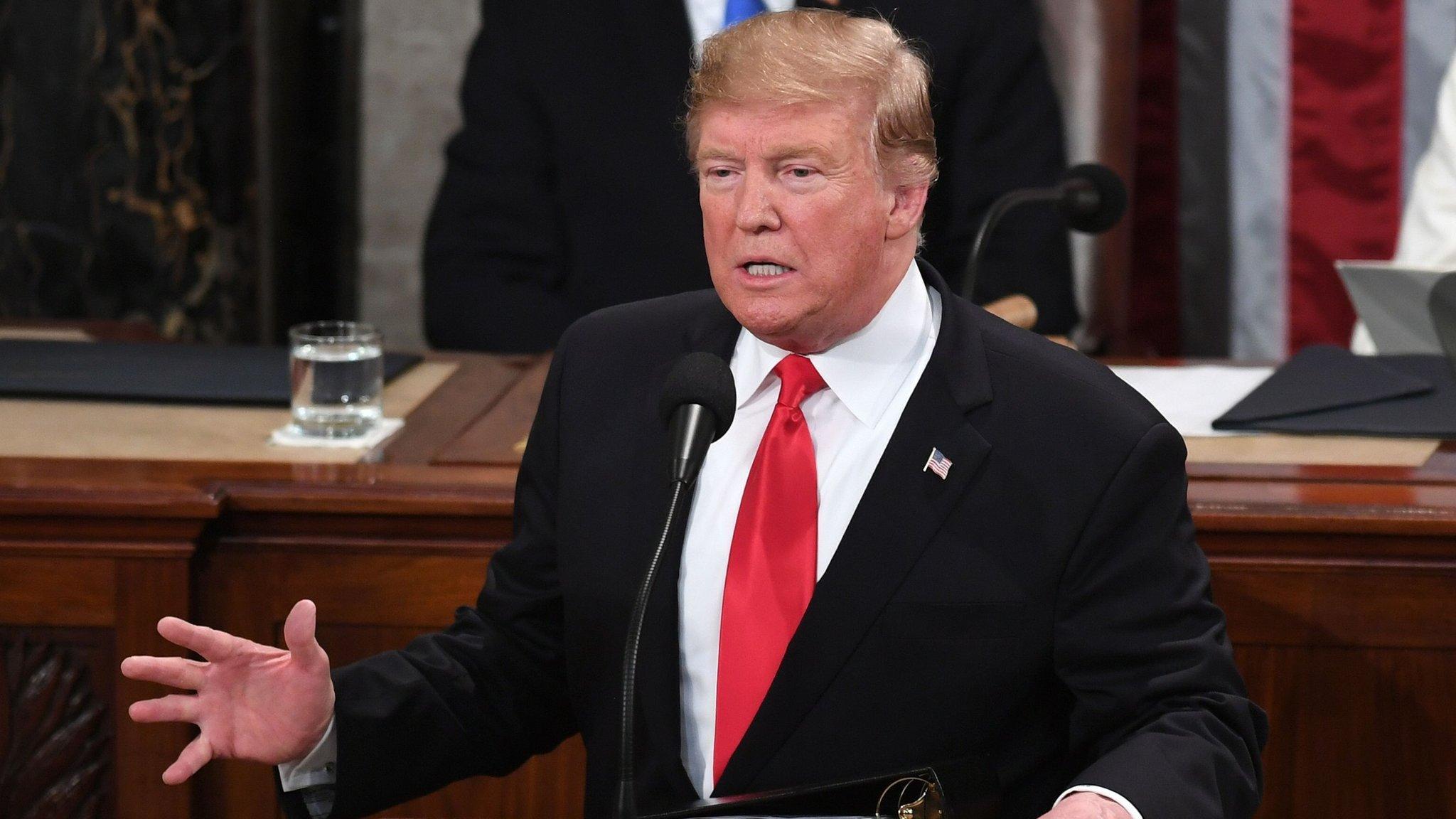
- Published6 February 2019